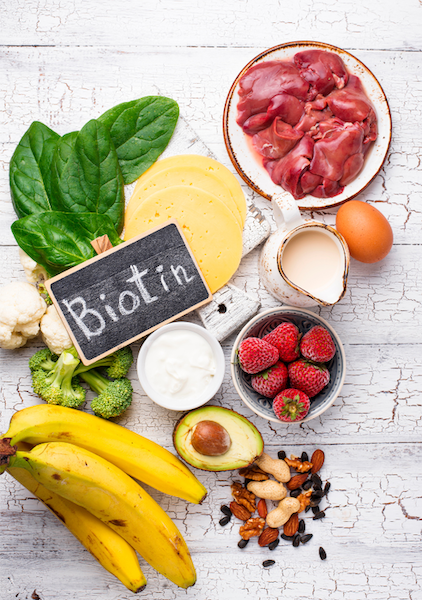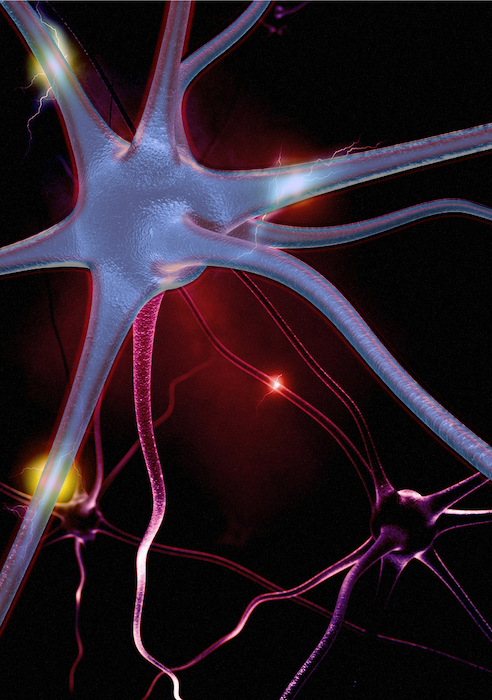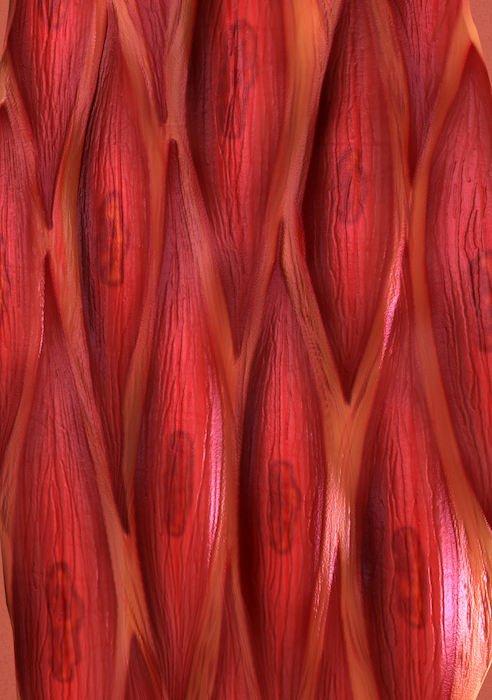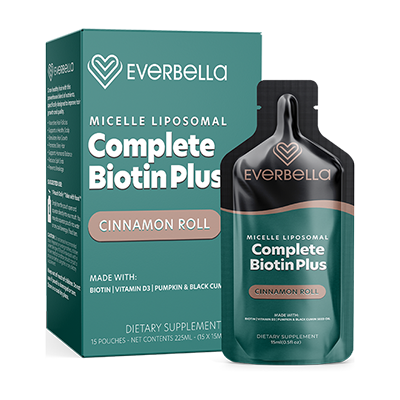Hey there! Today, I want to talk to you about this little powerhouse called Vitamin H, or as it’s more commonly known, biotin. It’s like the unsung hero of the B vitamin family, working behind the scenes to keep our bodies running smoothly. We’ll cover exactly how in just a moment. But first…

Biotin is part of the B complex gang, and these guys are all about turning our food into energy. They’re like the fuel for our bodies, helping us metabolize fats, carbs, and protein. Plus, they’re water-soluble, meaning our bodies don’t stockpile them, so it’s important to keep them coming in regularly. On top of that, it’s crucial for healthy skin, hair, and nails. It’s why they call it the beauty vitamin! Plus, it plays a role in keeping our nervous system in tip-top shape.
But here’s the thing – sometimes we can run low on biotin. This can happen if we’re not absorbing enough from our food or if we have certain health issues. And when our biotin levels drop, our bodies can start showing some signs, like hair loss, fatigue, or even depression. You definitely want to catch it before that happens!
So, how do we make sure we’re getting enough biotin? Well, we can start by loading up on foods that are rich in it. Think liver, eggs, salmon, and sweet potatoes – yum! But if you want to KNOW you’re always getting enough, there are always supplements, like micelle liposomal biotin, that can deliver biotin straight to your bloodstream for maximum absorption.
Before you commit to adding biotin to your supplement regimen, though, you may be wondering what kinds of benefits you can expect. After all, you want to know how to tell that the biotin is working. Well, that’s what this blog is all about! The many benefits of biotin.
So, without further ado, let’s talk about the perks of having enough biotin in our lives.
Biotin plays a crucial role in converting carbohydrates, fats, and proteins into energy that our body can use. It acts as a coenzyme in several metabolic reactions, helping enzymes break down macronutrients into usable forms of energy. Without enough biotin, these metabolic processes can slow down, leaving you feeling sluggish.
Biotin helps regulate cholesterol levels by increasing the production of high-density lipoprotein (HDL) or “good” cholesterol while decreasing low-density lipoprotein (LDL) or “bad” cholesterol. By improving the lipid profile, biotin supports healthy blood flow, reducing the risk of cardiovascular diseases like heart attacks and strokes.

Biotin is essential for the synthesis of myelin, a protective sheath that surrounds nerve fibers in the brain and spinal cord. Myelin ensures efficient transmission of nerve impulses, which is critical for cognitive function, memory, and overall brain health. Biotin also supports neurotransmitter synthesis, facilitating communication between brain cells.
Biotin plays a role in the production and maturation of white blood cells, including T cells, B cells, and natural killer cells, which are key players in the immune response. By enhancing the immune system’s ability to recognize and eliminate pathogens, biotin helps defend against infections and illness.
Biotin assists in the metabolism of glucose by enhancing the activity of enzymes involved in glucose utilization and insulin production. By improving insulin sensitivity and glucose uptake by cells, biotin helps regulate blood sugar levels, reducing the risk of hyperglycemia and type 2 diabetes.
Biotin is crucial during pregnancy and lactation for fetal development and maternal health. It supports embryonic growth, neural tube formation, and placental function. Biotin deficiency during pregnancy can lead to birth defects and complications, making adequate intake essential for both mom and baby.
Biotin possesses anti-inflammatory properties that help alleviate inflammation and oxidative stress in the body. By inhibiting pro-inflammatory cytokines and promoting the production of anti-inflammatory molecules, biotin can reduce swelling, pain, and tissue damage associated with inflammatory conditions.

Biotin promotes tissue regeneration and repair by facilitating cell proliferation, collagen synthesis, and wound healing. It also supports muscle function and recovery by enhancing protein metabolism and energy production within muscle cells.
Biotin’s anti-inflammatory and neuroprotective effects make it a potential therapeutic agent for managing multiple sclerosis (MS). By reducing inflammation and promoting myelin repair, biotin may help alleviate symptoms and slow disease progression in individuals with MS.
Biotin aids weight loss by boosting metabolism, increasing fat metabolism, and promoting satiety. By enhancing energy production and regulating appetite hormones, biotin can support weight loss efforts and help maintain a healthy body composition.
Biotin is essential for the synthesis of fatty acids, which are vital for maintaining healthy skin and nails. It supports keratin production, the protein that forms the structural basis of skin, hair, and nails, promoting strength, elasticity, and hydration.
Last but certainly not least, biotin enhances hair growth and quality by supporting keratin production, improving follicle function, and increasing blood flow to the scalp. It also helps prevent hair loss, dryness, and brittleness by nourishing hair follicles and promoting a healthy scalp environment.

Whether you’re looking to boost your energy, protect your heart, or just give your hair a little extra love, biotin has got you covered. But you need to make sure it’s actually getting absorbed and used by your body.
That’s where Complete Biotin Plus comes in. EverBella’s Micelle Liposomal formula ensures full absorption of biotin so that you get the FULL effects of what this nutrient has to offer.
What’s amazing is that the above aren’t even all the benefits you can expect from Complete Biotin Plus. There are FOUR other important nutrients in Complete Biotin Plus that all benefit your health in various ways.